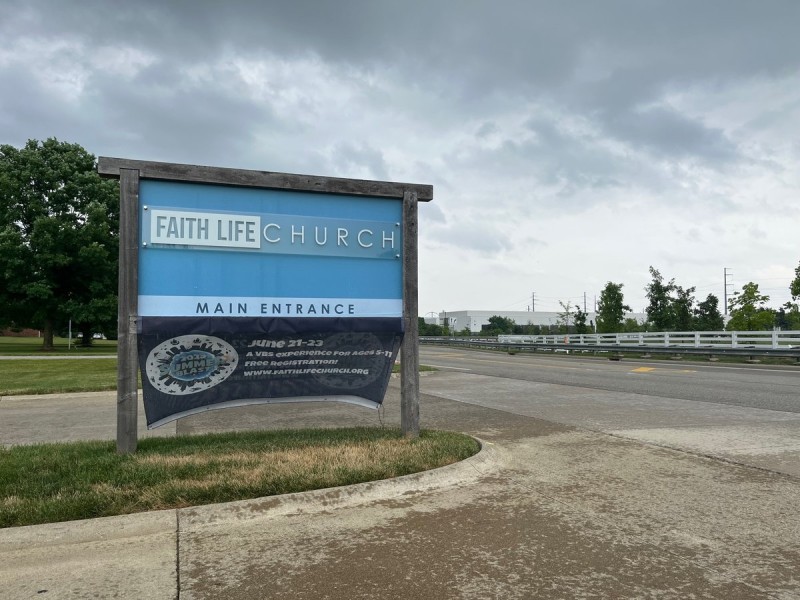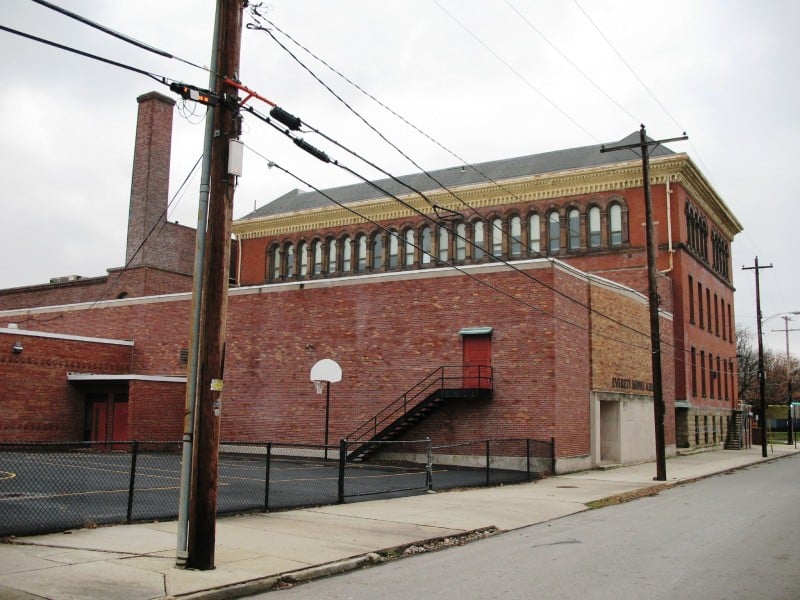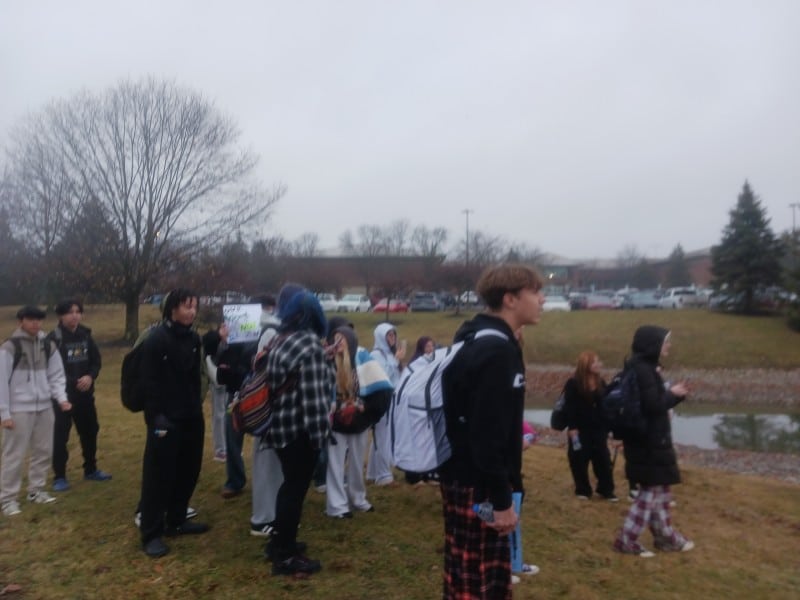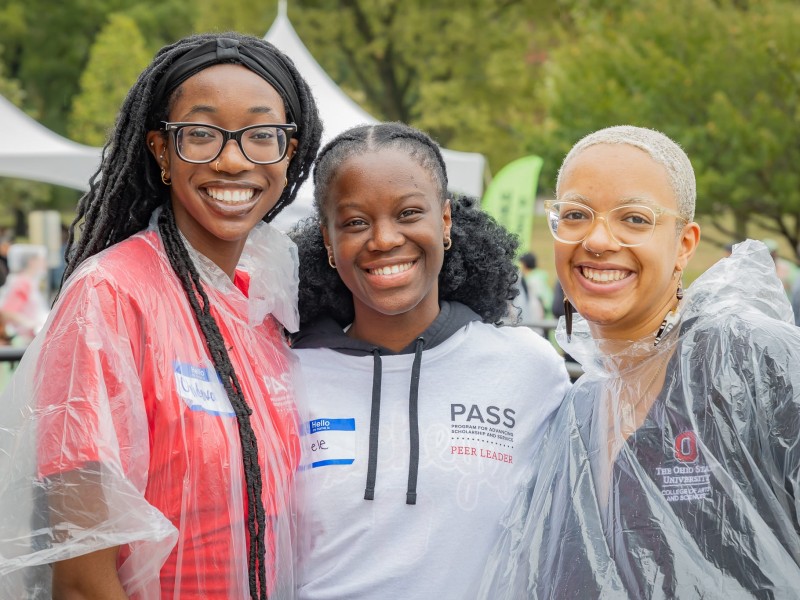New Albany church hosts Christian nationalist ‘Freedom’ rally
‘FlashPoint’ held a ‘Truth and Freedom’ event at Faith Life Church in early June, during which televangelist Kenneth Copeland said the U.S. should be ‘based on what George Washington said to Jesus.’

In early June, the Christian nationalist program “FlashPoint” hosted a two day “Truth and Freedom” rally at Faith Life Church in New Albany – part of a nationwide tour that continues with a July stop in Fort Worth, Texas.
Launched in support of former President Donald Trump’s reelection in 2020, “FlashPoint” exists as an expanding pulpit from which election lies and political disinformation are regularly spread. The New Albany event was no exception, its roster of speakers including the likes of My Pillow CEO Mike Lindell, who has advanced increasingly outlandish conspiracy theories falsely alleging that the 2020 election was stolen from Trump.
“We disagree, as you can imagine, that [‘FlashPoint’] is a source of lies,” said Jay Plourde of Faith Life Church. “We do believe that the truths that are being shared with the American public are incomplete, and that there are inaccuracies. ‘FlashPoint’ represents a different point of view, which we think is valid in our society and under our Constitution. … We pray for President Biden every day. … But that doesn’t mean we’re going to sit back and not express our concerns about things that are happening in the government and society based on the Bible. We are aligned with the Bible, always, and that’s what your article should say.”
At Faith Life, televangelist Kenneth Copeland delivered a sermon steeped heavily in Christian nationalist talking points, claiming that “the first act of Congress was to enter covenant with the Almighty God.”
“The day that George Washington was inaugurated, this was the day covenant was invoked,” he said, later adding that the United States “should be completely, totally based on what George Washington said to Jesus.” (While Washington expressed gratitude to an “Almighty Being” in his inaugural address, he did not mention Jesus or Christianity.)
Copeland’s language is consistent with that utilized by the growing Christian nationalist movement, a political ideology that asserts America was founded as a Christian nation and the government must take active steps to keep it that way. (In July 2022, video from a “FlashPoint” event in Georgia went viral when the congregation vowed to save the United States and take the country back, eventually garnering more than 1 million views on Twitter.)
Brad Onishi, a professor at University of San Francisco and co-host of Straight White American Jesus, a popular podcast that explores the intersection of politics and religion, said he views Christian nationalism as a growing danger, particularly in light of the apocalyptic language increasingly embraced by some of its adherents. Retired Army general and former White House national security advisor Michael Flynn, an election denier who once called for a military coup against the U.S. government, has cautioned the religious right that they are in the midst of a “spiritual war” and a “political war” in urging people to get involved with his Christian nationalist group, ReAwaken America.
“I think there’s a growing sense of them becoming a minority,” Onishi said. “We’re no longer a majority white Christian nation. We’re still a majority Christian nation, in a limited sense, but that’s not all white folks. … And I think what we’ve seen over the last six or seven years is an acceleration of Christian nationalism to a point of frenzy, where if we don’t stand up and fight now, we will lose our country.”
This fight took its most visible form during the Jan. 6 insurrection at the U.S. Capitol in 2021, a violent uprising fomented and stoked by Christian nationalists and the alt right, among other right-wing groups. In The New York Times, Samuel L. Perry, professor of sociology at the University of Oklahoma, cited not only the religious iconography displayed by the insurrectionists – crosses, the Christian flag, signs reading “Jesus Saves” – but also the language adopted in the prayers offered both in and outside the Capitol, which Perry said reflected “the views of white Americans who obviously thought Jesus not only wanted them to violently storm the Capitol in order to take it back from the socialists, globalists, etc., but also believed God empowered their efforts, giving them victory.”
“One of the things I would maintain is that there’s been an authoritarian turn in Christian nationalism that really sees democracy as more of an annoyance than a solution,” said Onishi, who spent much of his early adulthood in the predominantly white evangelical church and recently authored Preparing for War: The Extremist History of White Christian Nationalism–and What Comes Next. “And one of the reasons we see growing calls for a dictator, or growing calls for their only to be Christians in government, or growing calls to see people like Joe Biden or AOC (Alexandria Ocasio-Cortez) as demons rather than just political opponents, is there’s a growing sense of crisis, of apocalypse. And one of the things that Christian nationalism does – and especially white Christian nationalism – is it looks backward in the past, in nostalgic terms, to when America was great. And then it looks forward and says, ‘This country won’t exist in a few years unless we change something dramatically.’ So, the sense of apocalypse is a license for extreme action. When you’re in an emergency, you do things you normally would not do.”
Plourde countered that there are always going to be people “who are more concerned in their beliefs,” recalling how he heard “the end is nigh” talk in the 1990s and rubbed shoulders with people who believed Franklin D. Roosevelt to be the Antichrist.
“But I don’t pay attention to it, nor do I subscribe to it,” Plourde said. “These movements that are advocating civil disobedience, maybe it comes to that. I hope not. The scripture is clear in the New Testament that you’re supposed to obey those in authority. And if they’re wrong, you’re supposed to pray for them. … So, we’ve got to be careful about sticking to the scripture, being as articulate as possible, and making our stand.”
Despite its rising political influence – national political figures including Republican Reps. Marjorie Taylor Greene and Lauren Boebert have championed the movement – much of Christian nationalism’s growth has taken place outside of the spotlight, focused on small-scale networking events in rural areas and at suburban megachurches like Faith Life in New Albany.
“One of the arguments I’ve made is that Christian nationalism is so baked into American culture and politics that many people don’t recognize it even if it’s right in front of them, because it feels benign, or it feels normal,” Onishi said. “There are churches that are espousing radical rhetoric, and yet the people attending those churches are going to soccer games and attending school board meetings, and the people in their communities don’t look at them as extremists, as a threat. They look at them as people who love their kids, who love their country, who love God. And what’s wrong with that? But one of the things that scares me most is there is a foment in the movement, and there’s a dynamism to it, but we just accept it, because that’s America.”
Guthrie Graves-Fitzsimmons, a spokesperson for the Christians Against Christian Nationalism campaign and communications director at Baptist Joint Committee for Religious Liberty, said supporters of authoritarian theocracy reflect a small segment of American Christianity but “many Christians are susceptible to the claims of Christian nationalism because the ideology uses the symbols and scripture of our faith.”
“There’s a lot of education and awareness that needs to happen so Christians can see how Christian nationalism is a danger to our faith,” said Graves-Fitzsimmons, citing a recent Pew Research Center poll that found more than half of Americans are unfamiliar with the term “Christian nationalism.” “Christian nationalism is not the same as Christianity. Full stop. Christianity is a religion practiced by more than two billion people around the world in innumerable ways. Christian nationalism is a political ideology, wielded by those who want to gain and exert political power. The result is a gross distortion of the Christian faith and American democracy.”
This purposeful blurring between church and state has resulted in right-wing politicians and Christian nationalist preachers adopting a language that can be indistinguishable. “Over the last 60 years, you’ve seen conservative politics and this white Christian nationalist identity become almost inseparable,” Onishi said. “There are times you can close your eyes and you won’t know if you’re listening to a state representative from the Pennsylvania legislature or a megachurch pastor from San Diego.”
According to Onishi, Christian nationalist beliefs can fall within a wide range, from the churchgoer who sees America as foremost a Christian nation and is uncomfortable with a non-Christian in charge, to the extremist who says only Christians should be allowed to govern.
Race is also a factor in how Christian nationalists view the larger movement, Onishi said, with Black Christian nationalists tending to view the United States as never having lived up to its creed – “We’re hoping we can, in the future, have a more perfect union,” Onishi said of the mindset – and white Christian nationalists casting the country as a once-gleaming City on a Hill that has since lost its way. “There’s this idea that something went wrong, that some people disrupted God’s divine order for society,” Onishi continued. “And as a result of that disruption, things have gone downhill.”
Within that framing, Onishi said, the downfall can be attributed to the women’s liberation movement, to the Stonewall riots, to the Civil Rights movement, to immigration reform – ideas that have found resonance among right-wing hate groups. (Graves-Fitzsimmons said it is crucial to understand how Christian nationalism provides cover for white supremacy.)
“There are deep resonances between the alt-right and white Christian nationalists,” Onishi said. “There’s natural overlap, in terms of a sense of patriarchy. And there’s also an authoritarian impulse in the alt-right that matches up with many swaths of white Christian nationalism. The alt-right … wants society to look a certain way. They’re just more explicit about it.”
Onishi said the rise of Christian nationalism coincides with a larger shift he’s observed within the evangelical church, which he said has pivoted from the idea that Jesus could return at any moment to a belief that the Lord will return once Christians gain control.
“My goal as a teenager was to convert as many people as I could, because I thought at any minute Jesus could return,” Onishi said. “And it really feels like now the rhetoric is, ‘Once we take over the world, Jesus will return.’ And you can see the difference, where the goal is dominion over country and not conversion of the soul. We have to admit that’s a larger shift in American evangelism that, quite frankly, I think is a little bit scary in terms of our political future.”




